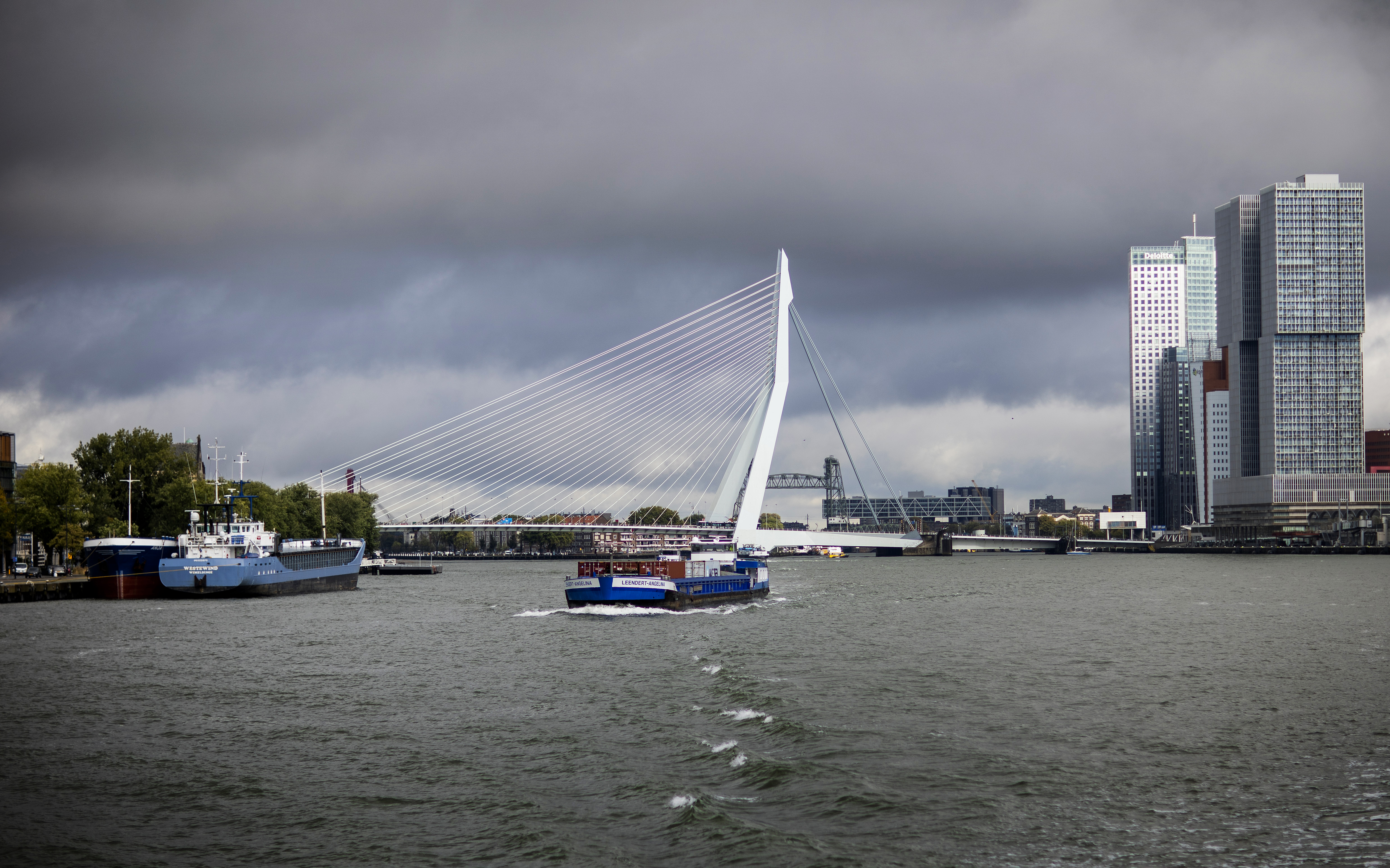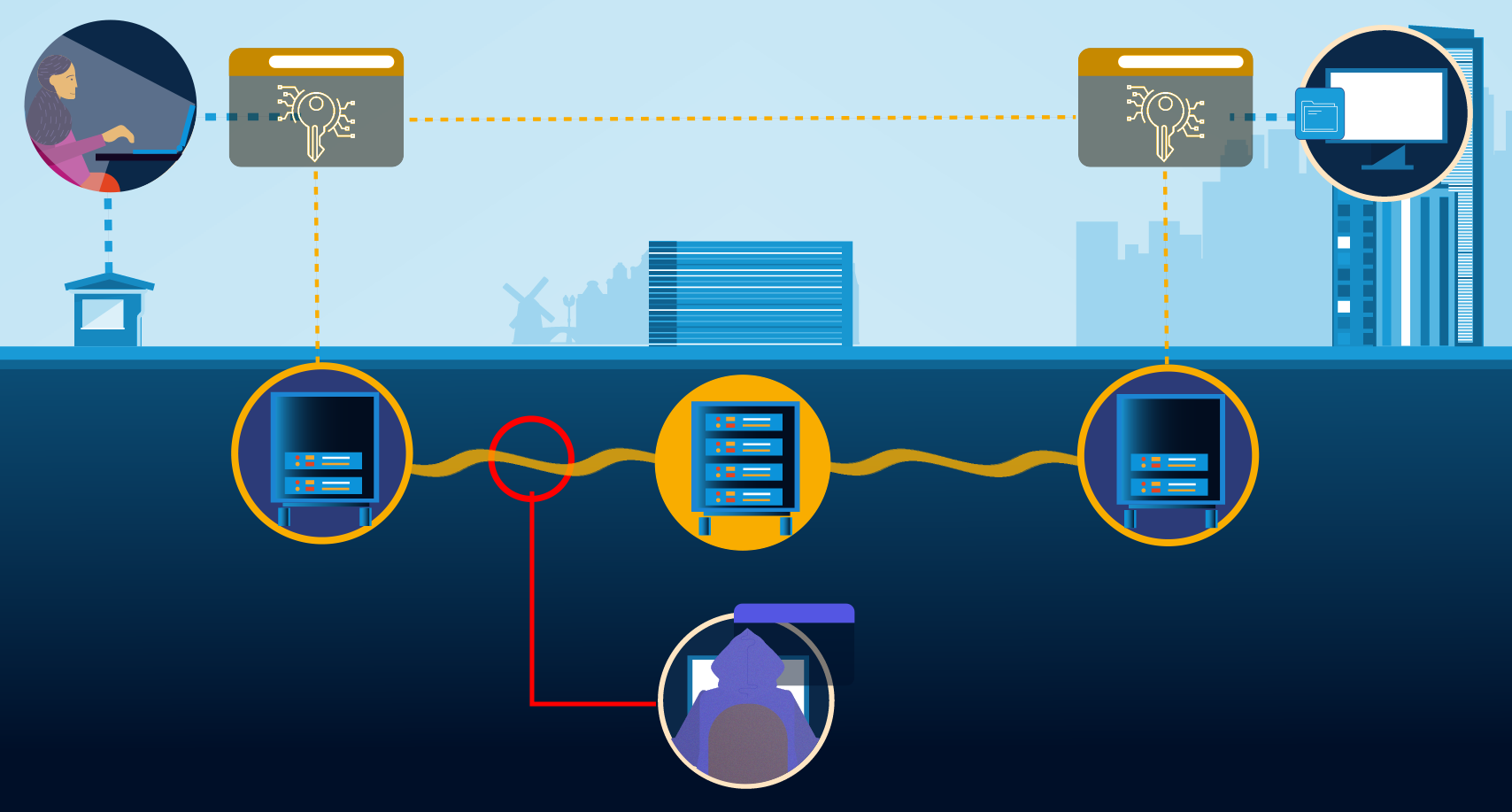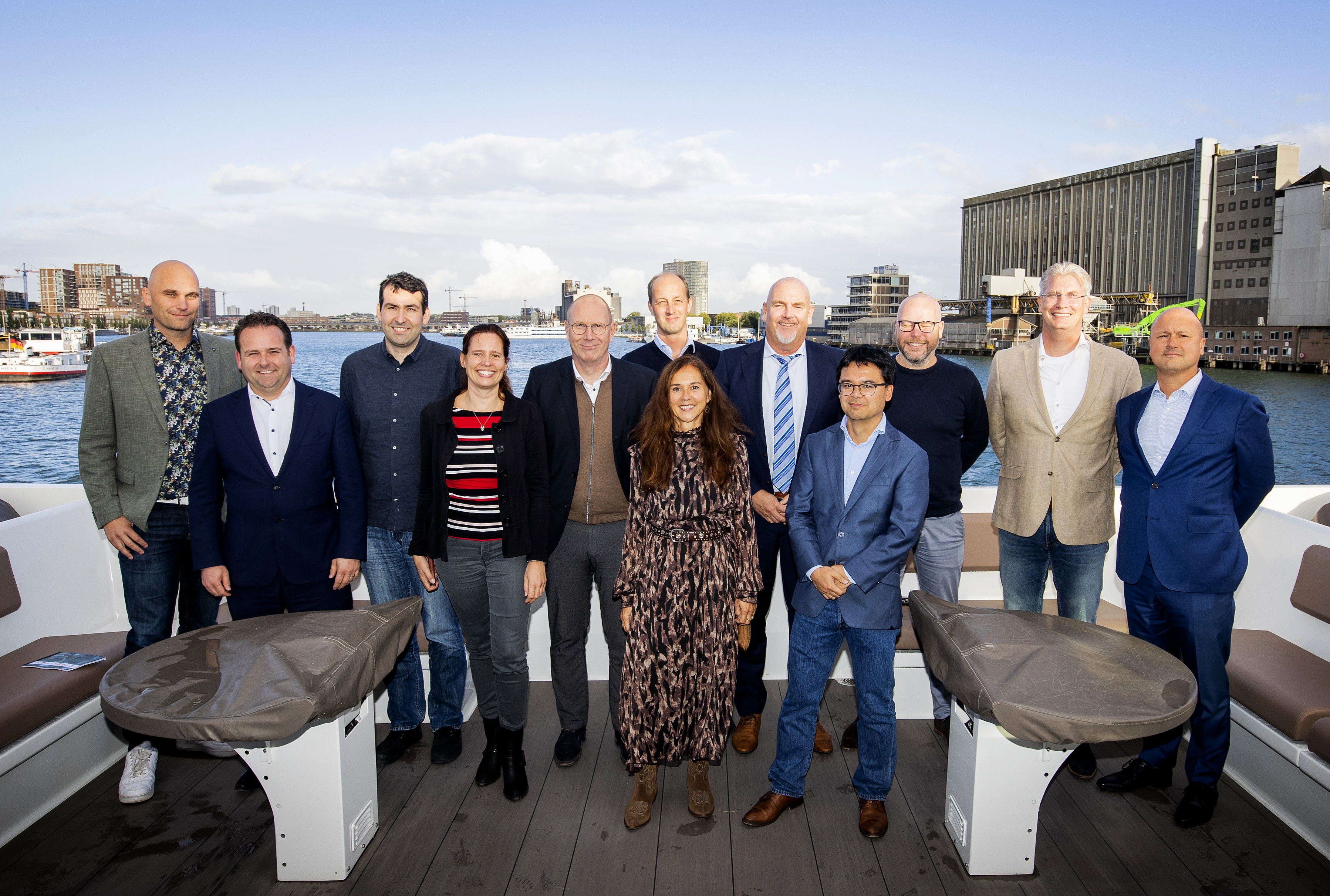Untappable internet for Port of Rotterdam offered by quantum technology
The Port of Rotterdam stakeholders will be able to participate and benefit from an untappable, multi-user quantum network for their critical communication systems. Several countries already experiment with quantum communication, but QuTech’s spin-off Q*Bird is the first to deploy a new type secure quantum network that can connect multiple users via a center hub in a cost-effective and scalable manner. This will ensure an untappable internet connection between many users, spread out throughout the harbour area.
The Port of Rotterdam represents a significant portion of the Dutch economy, handles almost 15 million shipping containers yearly and is therefore one of the largest ports in the world. Securing its communication systems will improve the safety of tens of thousands of sea ships yearly and for a significant part the economical traffic that comes after.
The safeguard of information transfer over the global internet is paramount for any large organization. Tampering with information channels has major financial implications and can be potentially life-threatening.

Economic impact
The port of Rotterdam is a crucial industrial and logistic hub that handles almost 15 million shipping containers yearly, and together with dry bulk cargo, wet bulk cargo (like oil), and breakbulk amounts to a total of almost 500 million tons of throughput. The total economic added value of the port represents 8.2% of the Dutch GDP (€ 63 billion), employing more than 500.000 people directly and indirectly.
Malignant tapping the communication systems between parties can lead to significant financial losses, disruption of critical business operation, or physical harm. A quantum communication infrastructure will insure an untappable connection and will improve the logistics chains of which Rotterdam is a part of, even more so a vital infrastructure on the European continent.

Special quantum key distribution technique developed by Q*Bird
Previously a team of scientists and engineers at QuTech—a collaboration between the Delft University of Technology and TNO—has demonstrated an alternative, untappable method for sending encrypted information. The technology has such commercial potential that they have decided to spin-off out of QuTech under the name of Q*Bird. “Our technology is based on a special implementation of quantum key distribution (QKD) that uses a central hub to connect users that want to exchange secure communications,” explains Q*Bird's co-founder and director Remon Berrevoets. “That means that it is possible to implement a quantum network in a cost-effective way, scalable to many end-users, and using mostly off-the-shelf equipment.”
im 3 group

Co-founder and director Ingrid Romijn: “Our quantum secure communication system has already shown to be fruitful during a proof-of-concept at major Dutch telecom provider KPN with Cisco hardware and the deployed testbed at digital infrastructure provider Eurofiber with Juniper hardware. The port of Rotterdam as a launching partner displays the enormous potential of our technology.”
Practical implementation
As a first step, the central hub of the system will be situated at Port of Rotterdam Authority and will connect users at Portbase, and two or three other maritime logistic companies that are based in the port of Rotterdam. The multi-user capabilities of the central hub allow for later additions of i.e. barges and pilot organization to the network. In due course, other end-users can be connected to the system too, for example: third party customers, suppliers, and emergency services.
Such a setup enables connecting all end-users with a secure, untappable connection. The first four end-users can be expanded later to many more. The users will share keys that are generated using quantum technology (and therefor inherently un-tappable) that they will use to encrypt messages using traditional technology. The strength of this type of setup is the ease by which it can be expanded to many more users, and the relative low cost of expansion. Upon completion, Portbase can be sure its communication line hasn't been tampered with while connecting with, for example, other harbor authorities.
From a technical perspective, this project enables a close collaboration between Single Quantum and Q*bird: two dutch high-tech companies with complementary expertise and global ambitions. By joining forces in this project, they will have a powerful societal impact in the region.
InnovationQuarter helped to orchestrate and implement this project, for example, by co-producing the Birch report (Dutch). During its research phase several leads have emerged that helped shape this consortium.